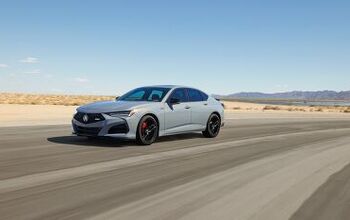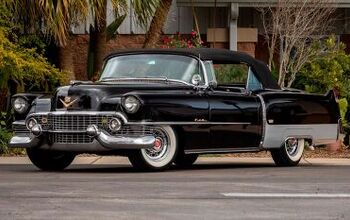Rebuilding Volkswagen's Reputation - Hard or Downright Impossible? An Expert Weighs In

Decades of feel-good corporate outreach and a hug-worthy relationships with buyers didn’t stop potential customers and veedub diehards from fleeing Volkswagen after the diesel stink bomb went off in Wolfsburg.
Like a husband of 50 years caught cheating with his wife’s sister, the intentional deception behind the diesel emissions scandal shattered the hard-earned trust between the company and its consumers. Thanks to that, Volkswagen’s sales trajectory now mimics that of a very leaky submarine.
Could Volkswagen have managed the scandal better, and can the company rebuild that lost trust?
According to the consumer opinion-tracking Reputation Institute, the answers to those questions are “you bet” and “yeah … it’s gonna take a loooong time.”
The Reputation Institute measures corporate reputations in the U.S. with its National Tracker service. It assesses a number of companies monthly by tracking the perception of the “informed” general public. To be a part of the study, a person must be familiar with (but not employed by) a particular company.
On any given year, the tracker gauges the monthly feelings of 2,000 individuals per company.
RI then takes the “pulse” of each company, assigning a ranking based on the public’s emotions (is the company a feel-good one or not?) and their opinion on a broad list of corporate governance values.
RI released a report on Volkswagen’s reputation today.
In the first quarter of 2015, Volkswagen enjoyed a good reputation worldwide, with a “RepTrak Pulse” figure of 70 to over 80 percent in surveyed countries. After the emissions cheating was laid bare, that reputation plunged by 23.5 points in Germany, 24.8 percent in France, and 29.9 percent in the UK.
The more distant U.S. recorded an 8.7 percent drop in the brand’s favorable opinion.
Consumer willingness to buy Volkswagen products dropped even further, with declines of 30 points or more recorded in some European countries.
According to Stephen Hahn-Griffiths, Reputation Institute’s vice president of U.S. strategy consulting, the “emotional crutch of a legacy of goodwill” doesn’t survive long when people start to take a hard look at a company’s actions, and begin asking questions.
In Volkswagen’s case, the damage is done, and the automaker faces a long, tough road ahead.
“Getting that emotional/feel-good back is going to take a long period of time,” said Hahn-Griffiths in a phone call with TTAC. “There’s no quick fix overnight. A lot of the love out of legacy was lost, and it’ll take a lot of effort to gain it it back … You can’t message your way out of the situation. You have to earn back reputation literally one potential member of the general public at a time.”
Even the company’s “loyal ambassadors” — those people who can be counted on to defend “their brand” in public no matter what the controversy — are nowhere to be seen in the wake of the scandal.
So, could Volkswagen have prevented some of the damage in the wake of the scandal? The company didn’t do a good job in the early days (or months) of the crisis, and that will hurt them.
“Right now, VW is stumbling and bumbling through a series of good intentions that are poorly executed,” said Hahn-Griffiths, adding that Volkswagen avoided culpability when the scandal broke, went through a period of denial, and generally acted very slowly to address the issue.
The closest (recent) parallel in the auto industry is Toyota’s unintended acceleration scandal, which didn’t damage Toyota’s reputation nearly as much as the diesel scandal has damaged Volkswagen.
After a slow start, Toyota did the right things, said Hahn-Griffiths. Thanks to public discourse, transparency, and cooperativeness, the hit to its reputation only lasted six to nine months.
Volkswagen’s multi-billion dollar deal with U.S. regulators and owners was the first major step to overcoming the legal issues surrounding the scandal, but all those buybacks and repair jobs likely won’t start for months. Even then, many former owners will walk out of dealerships, never to return.
Will smoking deals keep them there? Don’t count on it, says Hahn-Griffiths.
“Monetary incentives, and a focus on ‘Hey, we’ve got a great product’ is not going to be enough to win loyalty,” he said.
“We know, based on data, that only 40 percent of reputation can be attributed to the measures of products. Increasingly, the other 60 percent is based on the company that stands behind the products … (Volkswagen) has to take decisive action, not just on admitting the culpability of the cheat device, but treating customers with the utmost respect and appreciation through an unparalleled customer service experience. That’s the best chance VW has to retain those customers.”
The automaker’s buyback program is fraught with danger, due to the unprecedented scope of the program (coordinated through a stressed dealer network), and the complexity of coordinating the whole operation.
Get it wrong, and Volkswagen will have even more people cursing its name.
Tomorrow marks eight months since the Environmental Protection Agency leveled charges and blew the lid of the long-simmering emissions scandal. Has the automaker recovered any of its lost reputation since then?
Going by early second quarter results, the answer is a flat “no.”
“Volkswagen is still in the roots of recovery, and we’re not going to see any significant bounceback any time soon,” said Hahn-Griffiths.
[Image: Volkswagen Golf, Volkswagen of America]

More by Steph Willems
Latest Car Reviews
Read moreLatest Product Reviews
Read moreRecent Comments
- JMII Hyundai Santa Cruz, which doesn't do "truck" things as well as the Maverick does.How so? I see this repeated often with no reference to exactly what it does better.As a Santa Cruz owner the only things the Mav does better is price on lower trims and fuel economy with the hybrid. The Mav's bed is a bit bigger but only when the SC has the roll-top bed cover, without this they are the same size. The Mav has an off road package and a towing package the SC lacks but these are just some parts differences. And even with the tow package the Hyundai is rated to tow 1,000lbs more then the Ford. The SC now has XRT trim that beefs up the looks if your into the off-roader vibe. As both vehicles are soft-roaders neither are rock crawling just because of some extra bits Ford tacked on.I'm still loving my SC (at 9k in mileage). I don't see any advantages to the Ford when you are looking at the medium to top end trims of both vehicles. If you want to save money and gas then the Ford becomes the right choice. You will get a cheaper interior but many are fine with this, especially if don't like the all touch controls on the SC. However this has been changed in the '25 models in which buttons and knobs have returned.
- Analoggrotto I'd feel proper silly staring at an LCD pretending to be real gauges.
- Gray gm should hang their wimpy logo on a strip mall next to Saul Goodman's office.
- 1995 SC No
- Analoggrotto I hope the walls of Mary Barra's office are covered in crushed velvet.




































Comments
Join the conversation
First Audi sells me a brand new 2011 Q5 with an engine that bleeds oil and has an exploding Takata Air Bag. Next they tell the world they are going to start building these Q5s in Mexico. Translation: pay German prices for the Q5 adobe. Now we have the diesel gate scandal and VW arrogance in it's resolution. Screw VW and all it's brands. Audi is just a goosed up fancy VW. VW: get the hell out of the United States before 2017 and take your f'ing southern factory with you.
Don't hold back Jasper, it's not good for your blood pressure:) Talk about a Sophie's choice- don't spin on your oil, or you'll get Claymored by the airbag...oh well, at least you'd get out of the vehicle!